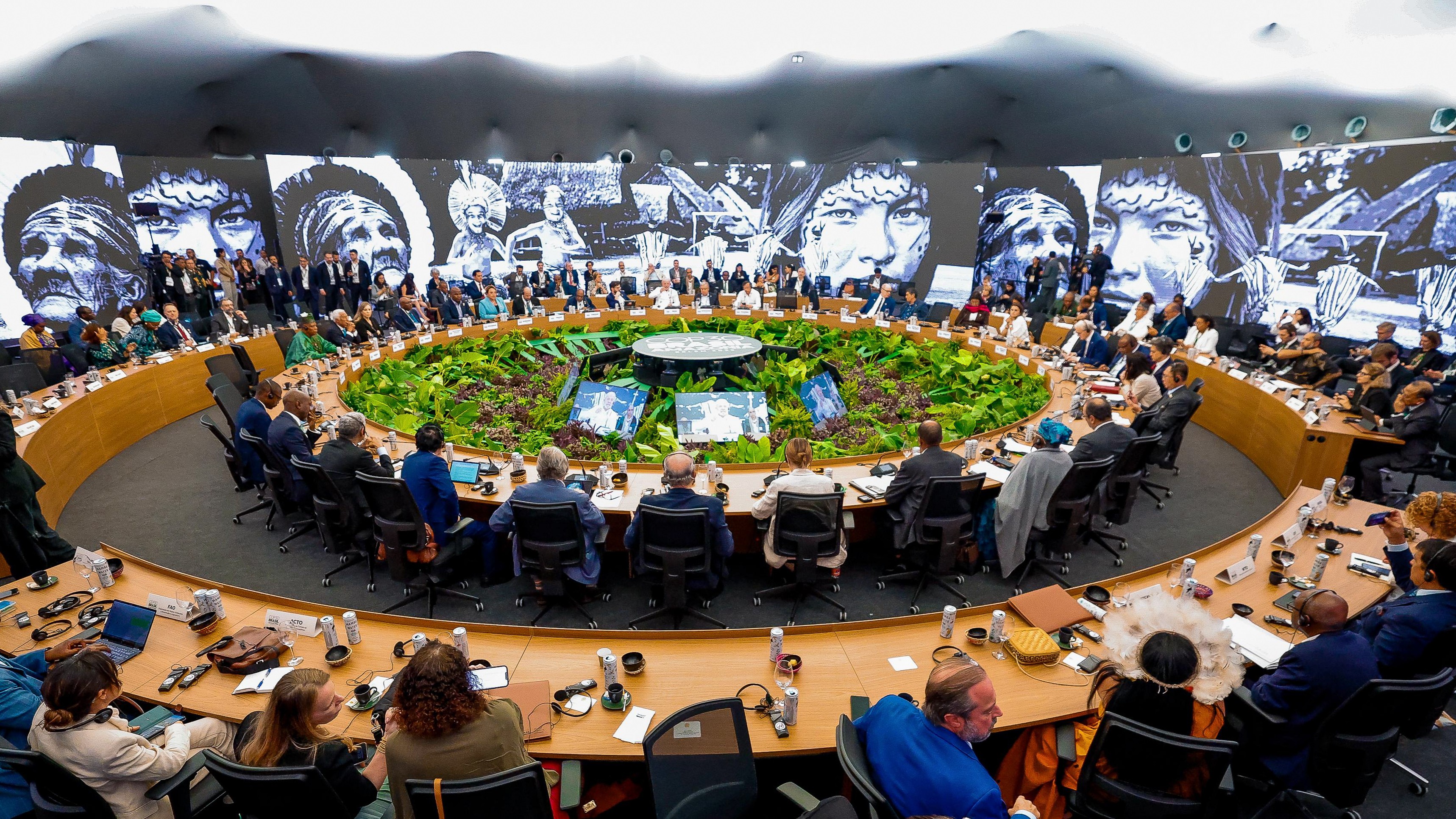At Climate Summit, Lula Highlights that COP30 Proposes a Pact for the Life of Forests, Oceans, and Humanity
During a thematic session on climate and nature, the President also announced a Call to Action declaration on Integrated Fire Management and Wildfire Resilience. The document was endorsed by 50 countries and three international organizations

By Rafaela Ferreira/COP30
The opening thematic session of the Belém Climate Summit, held on Thursday, November 6, focused on the theme “Climate and Nature: Forests and Oceans.” During the meeting, the President of Brazil, Luiz Inácio Lula da Silva, emphasized that this is the COP of truth — a moment to propose a pact for the life of forests, oceans, and humanity itself. “It is time to turn ambition into action, and to restore the balance between growth and sustainability,” he stated during the session.
United Nations Secretary-General António Guterres also addressed the gathering, underscoring that the protection of forests and oceans is essential to ensuring climate stability, preserving biodiversity, and safeguarding the survival of millions of people. “Protecting forests and oceans is not an act of charity, but a legal and moral responsibility — and also an economically sound decision,” he affirmed.
Forests
Addressing the issue of forests, the President of Brazil emphasized that deforestation has been reduced by more than 50%. “We have recorded the lowest deforestation rate in the Amazon in 11 years. Our commitment is to restore 40 million hectares of degraded pastureland over the next decade. But the forest is not made up solely of fauna and flora — around 50 million people live in the Amazon region of South America,” he noted, highlighting the residents of major cities such as Belém and Santa Cruz de la Sierra, as well as those in villages, riverine communities, and Indigenous territories.
In the same spirit, Secretary-General António Guterres welcomed the launch of the Tropical Forests Forever Fund (TFFF), officially inaugurated on the first day of the Summit. “Today, we celebrate a major initiative for tropical forests. But vital forests extend beyond the tropics, encompassing boreal and temperate regions. They store carbon and regulate rainfall, shielding us from floods, droughts, and extreme heat. We must halt deforestation by 2030 to keep the 1.5-degree target within reach,” he stressed.
Traditional peoples
During the session, Brazil and eight other countries endorsed the Intergovernmental Commitment on Land Tenure, which aims to protect 160 million hectares of land belonging to Indigenous Peoples, traditional communities, and Afro-descendant groups with traditional lifestyles in tropical forest countries. Alongside this commitment, 39 funding organizations pledged $1.8 billion to support the tenure rights and roles of Indigenous Peoples, local communities, and Afro-descendant communities in protecting forests and biodiversity.
The signatory countries with this type of biome have committed to strengthening public policies to protect these territories. These countries are: Brazil, Colombia, Costa Rica, Ecuador, Fiji, Indonesia, and the Democratic Republic of the Congo.
The donors Norway, Germany, the United Kingdom and the Netherlands, together with 35 philanthropies, have endorsed the $1.8billion pledge.
Oceans
On the topic of oceans, it was highlighted that rising ocean temperatures may inhibit rainfall formation in the Amazon rainforest. “The savannization of the Amazon would have devastating consequences for the global climate and agriculture,” stated President Lula.
He further underscored the importance of the High Seas Treaty in strengthening the connection between oceans, climate, and biodiversity. “The agreement will protect and ensure the sustainable use of marine biodiversity in areas beyond national jurisdiction starting in 2026. Brazil will ratify this important instrument by the end of this year,” he affirmed.
Special Envoy for Oceania, Jacinda Ardern, also present at the thematic session, stated that the approach to oceans and climate remains fragmented even today. “It is time to integrate 71% of Earth’s surface — the planet’s great environmental stabilizer — into the COP agenda and to adequately finance its restoration and protection,” urged Jacinda.
Call to Action
On the occasion, President Lula announced the Declaration of Call to Action on ‘Integrated Fire Management and Wildfire Resilience’, endorsed by 50 countries and three international organizations. The document acknowledges that wildfires are among the most visible and destructive manifestations of climate change.
It further affirms that wildfires represent one of the most dramatic expressions of climate disruption, affecting countries across all regions of the world, regardless of their level of development.
The declarations on integrated fire management and the provision of means to secure Indigenous land tenure are actions that renew our commitment to forest preservation. No country can face the climate crisis alone. The fires that consume our forests do not respect borders,” concluded the President.
Translation: Michel Emmanuel Félix François (POET/UFC)
Proofreading: Tadeu Azevedo (POET/UFC)
